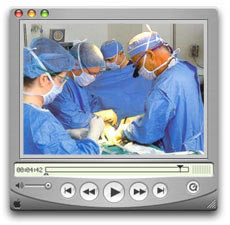The Ethics of Tubal Ligation
Dr Berger has posted to his tubal reversal blog about the Ethics of Tubal Ligation. He says Doctors who perform tubal ligations should consider the possibility that the patient might in the furure change her mind, and therefore it is preferable to perform a type of tubal ligation better suited to reversing at a later time, should the need arise.
"One of today’s patients at Chapel Hill Surgical Center was a woman in her thirties who recently become married and had a tubal ligation at age 24 years when she had no children. Her tubal ligation had been performed by a tubal coagulation procedure in which the fallopian tubes were burned at the junction of her uterus. The tubal lumen or opening within the uterine wall was scarred completely on both the right and left sides from the burning procedure. Therefore, the only way to perform a tubal reversal was through the technique of tubouterine implantation.
I mention this case because it was unnecessarily destructive, especially when performed for a young woman with no children. Many studies show that these are women who are most likely to change their minds later on and want to be able to have children. In this case, almost any other tubal ligation procedure would have been preferable. In my view, the best choice of a tubal ligation for a young woman with no children is the clip method (either Hulka clip or Filshie clip)."
In a follow up post the question is raised, since there are tubal ligation methods that can be reversed, is it ethical for a doctor to destroy the tubes in a young woman with no children?
Dr Berger writes "One of today’s patients is a 26 year old who had a tubal ligation at age 22 and had never had children. The doctor who performed her tubal ligation first applied Falope rings to the tubes, then proceeded to burn them in several locations. In her case, tubal reversal was not possible at all. During her operation, I wondered why any doctor would perform such a destructive type of tubal ligation for a young woman with no children. The Falope ring alone would have been sufficient to prevent pregnancy, yet allow reversal at a later time if she changed her mind about having children. Fortunately, she has the option of treatment by IVF. Still, why would a doctor perform an operation that essentially destroyed the tubes in such a young woman when there are a variety of other less destructive procedures for performing a tubal ligation? Is this ethical medical treatment?
I am very interested in what others think about this issue. Please leave your comments!!"


No comments:
Post a Comment